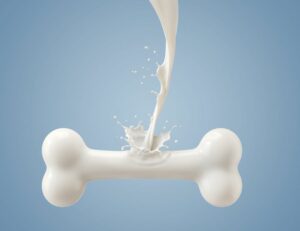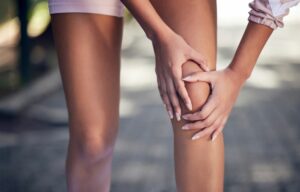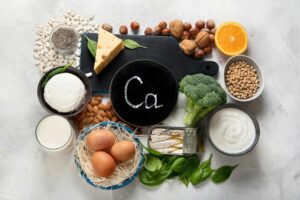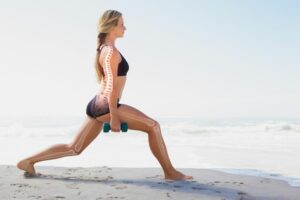Osteoporosis risk increases as we age. No matter how nimble you may feel now, experts reveal 3 ways to keep your bones strong and healthy
Want to know how to keep your bones strong and healthy?
Unless you’ve ever had a nasty fall and sustained a fracture or a broken limb, chances are thinking about your bone health isn’t exactly a top priority. Yet, no matter how nimble you may feel right now, it’s important not to take your bones for granted.
‘Your skeleton is made up of bones,’ says Dr Nicky Keay, Sports and Dance Endocrinologist, Honorary Clinical Lecturer at University College London and author of Hormones, Health and Human Potential.
‘This framework provides your body with support, structure, stability and also protects your vital organs’.
Bones also have other functions. They interact with muscles to enable movement. They store minerals such as calcium, phosphorus and magnesium, and some long bones contain marrow, in which new red and white blood cells are made.
no matter how nimble you may feel right now, it’s important not to take your bones for granted
‘Bone is made up of a combination of protein and minerals,’ says Dr Keay.
‘Collagen is the protein component of bone on which the mineral, hydroxyapatite (containing calcium and phosphorus) is deposited.
‘Collagen is also found in many soft tissues (e.g.: tendons, ligaments, skin), but it is the mineralisation of collagen that transforms collagen into bone.
‘This is what gives bone its resilient strength. If there is too little mineral bones become bendy, which is why some children develop bow legs or rickets.
‘If there is too much mineral, and collagen protein is degraded, bones become brittle, as in osteoporosis. For healthy bones, collagen protein and minerals need to be in balance’.
READ MORE: Collagen powder: why celebrities love it and how it can help you look younger

Peak Bone Mass
‘During childhood and adolescence bones are still developing until you reach peak bone mass in your early 20s,’ says Dr Keay.
‘This is when your bone mineral density is at its highest. When you’re young your body makes new bone faster than old bone is broken down. But, once you hit peak bone mass, you start to lose bone slightly more quickly than you gain it.
‘The higher your peak bone mass the more protection you should have against osteoporosis (weak, brittle bones) and osteopenia (when bone mineral density is lower than it should be) in later years’.
The Hormone Factor
While lifestyle factors such as nutrition, exercise and sleep all have an impact on your bone health, another major driver is your hormonal health.
‘You can eat all the right foods and exercise, but if your hormones are out of balance this will affect your bones,’ says Dr Keay.
‘So, if you want healthy bones, it’s also vital to look after your hormonal health.
‘Oestrogen, particularly oestradiol (the most active form of oestrogen) is essential for bone health, because it promotes the activity of bone-producing cells (osteoblasts).
if your hormones are out of balance this will affect your bones
‘The skeletal system contains bone-specific oestradiol receptors that help to inhibit bone loss and support healthy bone formation. The most rapid increase in bone mineral density occurs in the teenage years, during puberty, when the sex hormones kick in.
‘This is the time when there’s an accumulation towards peak bone mass. It’s no surprise that changes in bone mineral density are mirrored by changes in oestradiol levels throughout your lifetime’.
READ MORE: Training for women – 7 reasons women should eat & train differently to men

Looking After Your Bones
‘Factors that may disrupt hormonal function during puberty, and, at any time during your reproductive years – may include eating disorders such as anorexia, faddy diets, poor nutrition, or even over-exercising, leading to erratic or missed periods (amenorrhoea) and low oestrogen levels,’ says Dr Keay.
‘If not addressed, this may have an adverse effect on peak bone mass.
your whole skeleton is ‘recycled’ every 10 years or so
‘The good news is that bone is an active tissue and about 10 per cent of the skeleton is remodelled annually. This means your whole skeleton is ‘recycled’ every 10 years or so.
‘So, even if you weren’t that healthy as a teen, you can still improve your bone health by making healthy lifestyle changes now’.
Tip #1 Nourish your bones
‘Getting enough calcium is crucial for bone health,’ says Dr Richard Allison, Consultant in Performance Nutrition and Clinical Dietetics at ISEH, part of HCA Healthcare UK.
‘Adults require 1000 mg calcium daily. Women over 50 and men over 70 need to increase calcium intake to 1200mg. Although dairy products like cheese, milk and yoghurt are excellent sources of calcium, some people cannot, or choose not to, consume dairy.
‘Other foods that provide good sources of calcium include leafy greens such as broccoli and cabbage, tofu, almonds and certain fish, including sardines.
READ MORE: Weightlifting for women: PT reveals 6 benefits you need to know about

Tip #2 Get enough Sunlight and Vitamin D
‘Another aspect of bone health is getting enough sunlight,’ says Dr Allison.
‘Vitamin D is a prohormone, produced when your skin is exposed to sunlight. It is essential in aiding the body’s calcium absorption.
Our main source of vitamin D is from sunlight exposure
‘If your body is low in vitamin D and calcium, this causes calcium to be taken from the bones. This weakens the bones and increases the risk of fractures.
‘Our main source of vitamin D is from sunlight exposure. But this can be difficult in the UK where there is limited sunlight, especially in the winter. As a result, the vast majority of people do not get enough vitamin D.
‘While you can get limited quantities of vitamin D from foods such egg yolks, mushrooms, fish, and fortified almond and rice milks – this isn’t really enough. So, taking a daily supplement is a reliable way to ensure you stay topped up’.
Try: vegan Vitamin D Gummies, gummies sourced from photosynthesising algae and look for one that are sugar-free.

Tip #3 Stay Active
‘Regular exercise makes your bones stronger,’ says Dr Keays.
‘To promote good bone health, try to do at least 30 minutes exercise a day. This can be split into 10-minute slots. Include weight bearing exercises such as walking, dancing, low impact aerobics as this has an osteogenic, bone-building effect.
‘Also, muscle strengthening exercises – e.g: using resistance bands, cycling, climbing, stair walking, push ups, sit ups, squats. This activates muscles and causes them to ‘pull’ on the bones which has a positive, strengthening effect’.
Like this article? Sign up to our newsletter to get more articles like this delivered straight to your inbox.
Source link
#risk #osteoporosis #ways #bones #healthy